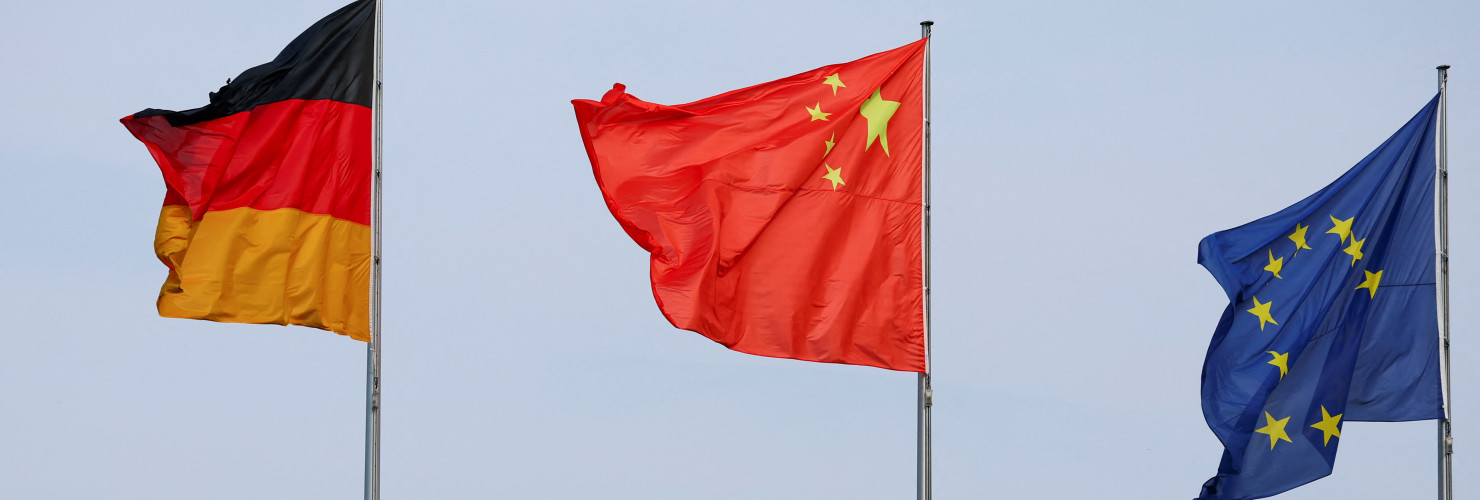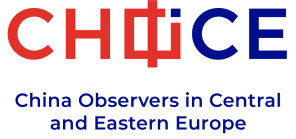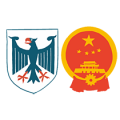

Courting Berlin, countering Brussels: China’s twin-track approach to Germany and the EU
Since Germany’s 2023 China Strategy entrenched “de-risking, not decoupling,” Beijing has pursued a deliberate twin track, says Stefan Messingschlager: reassuring Berlin through business-friendly optics and high-level access, while pushing back at the EU level when trade defense and technology controls bite.
Germany’s first China Strategy, released in July 2023, codified the now-familiar triad of partner, competitor, and systemic rival. It also placed de-risking – rather than decoupling – at the center of Berlin’s economic security vocabulary. For Beijing, the strategy mattered less for its novelty than for what it signaled: Europe’s largest economy had aligned with an EU-wide shift towards resilience and control.
Since then, China has pursued a twin-track response: courting Berlin with business-friendly optics and high-level access, while adopting a harder line at the EU level when trade defense or technology controls bite. This pattern sharpened in 2024-2025: reassurance towards Berlin, countermeasures towards Brussels. The choreography is deliberate – designed to separate Germany from a firmer EU line, especially as Beijing prepares to retaliate where EU instruments threaten its core interests.
This strategy exploits the EU’s institutional design: Brussels holds exclusive competence over Common Commercial Policy and trade remedies, while Berlin offers prestige and market access. Whether this approach succeeds will determine if European de-risking stabilizes as rules-based resilience or slides into tit-for-tat confrontation.
Beijing’s first move was to reframe the debate: party-state outlets sought to delegitimize de-risking as “decoupling by another name.” Outwardly, rebuttal came paired with reassurance: On his Berlin stop in June 2023, Premier Li Qiang told German industrialists that “failure to cooperate is the biggest risk, and failure to develop is the biggest insecurity.”
Beijing also responded directly to Berlin’s strategy: the Chinese embassy warned against forcible de-risking based on “ideological prejudice,” flattering German pragmatism as the EU was sharpening its tools. The same bifurcation – defiance towards the concept, conciliation towards German business – framed Chancellor Olaf Scholz’s April 2024 visit with a high-profile CEO entourage, where Chinese readouts amplified continuity and “win-win” cooperation.
The toolkit at work
Beijing paired low-cost courtesies for Berlin with highly visible access signals. Most notably, it extended unilateral, visa-free entry for German passport holders (alongside several other EU Member States) through December 31, 2025 – a small fiscal outlay with outsized signaling value, intended to revive travel and deal-making and to keep business constituencies invested in engagement with China.
Climate diplomacy offered a second safe harbor: the EU-China summits in December 2023 and July 2025 produced joint language on climate cooperation even as economic frictions thickened. The substance was limited, but the staging reinforced partnership claims and helped preserve a floor for continued dialogue.
On the pressure track, the European Commission’s anti-subsidy probe into Chinese electric vehicles (EVs) – announced in September 2023 – moved from provisional duties in July 2024 to definitive countervailing measures taking effect on October 30, 2024. Beijing denounced the case as protectionism undermining the green transition and responded at the EU level. It opened an anti-dumping investigation into EU brandy and, in July 2025, imposed definitive duties for five years with price undertakings for selected producers – a pointed response aimed at Paris rather than a strike at German flagships.
In parallel, Beijing tightened leverage over critical inputs: export licensing for gallium and germanium products took effect in August 2023, followed by permit requirements for key graphite grades – vital for EV anodes – from December 1, 2023. In telecommunications security, Berlin’s decision to purge “high-risk” vendors from core networks drew accusations of “discrimination,” yet China avoided direct penalties on German original equipment manufacturers – contesting EU norms while preserving the bilateral economic ballast that keeps the Berlin track open.
Stress tests of the twin track
Three episodes between 2024 and 2025 tested the twin-track arrangement. The Commission’s EV anti-subsidy case became the institutional stress test: despite intensive lobbying by Germany’s auto sector and Berlin joining a small minority voting “no” in the Member State vote, the Commission secured a qualified majority. For Beijing, the lesson was stark: Germany can dissent, but it cannot shield China from an EU coalition.
In telecoms security, Berlin’s July 2024 decision to phase out Huawei and ZTE – core network elements by 2026, broader 5G components by 2029 – finally aligned practice with EU guidance after years of hesitation. Rhetoric in Beijing hardened, yet the practical response remained calibrated, careful not to rupture the economic ballast underpinning the bilateral relationship.
Meanwhile, a series of espionage cases – arrests in April 2024, including an aide to a far-right MEP, and the August 2025 trial opening of a former parliamentary assistant – darkened the mood within Germany’s security community. They did not by themselves trigger policy shocks, but they widened support for tighter screening and complicated efforts to uphold the notion of China as a straightforward “partner.”
These stress tests expose the mechanics of Beijing’s twin-track approach. Brussels wields the levers that bite under the Common Commercial Policy, proposing and imposing trade remedies – and now deploying the Foreign Subsidies Regulation (FSR) and the Anti-Coercion Instrument (ACI) – while Berlin remains economically pivotal and symbolically useful.
Germany’s “no” can register but not prevail, as the EV episode shows. Retaliation therefore targets the EU level, even as the bilateral channel with Berlin stays open for access, optics, and case-specific advocacy. Scholz’s 2024 visit was leveraged to showcase continuity and amplify the “not decoupling” message, even as Brussels advanced FSR and ACI enforcement. The wedge only works if Berlin’s political signaling can be kept separate from EU enforcement; the more institutionalized the latter becomes, the narrower the scope for bilateral end-runs.
Stabilization or tit-for-tat
Across 2023-2025, Beijing kept economic doors visibly ajar for Germany – high-level access, curated CEO encounters, visa-free travel – while pushing back at the EU level. That wedge worked when Europe’s toolbox was nascent and German business constituencies dominated; it works less now as EU-level instruments consolidate and Berlin’s security consensus hardens. Absent a major shock or a reallocation of competences, the “reassure Berlin/counter Brussels” pattern will endure.
Two trajectories are plausible. The baseline is managed estrangement: EU trade defense and economic security tools continue to mature; Beijing answers with calibrated, sector-specific countermeasures while maintaining courtesies for Berlin. Partial stabilization is within reach if technical talks on electric vehicles – price undertakings or minimum-price commitments – temper escalation and if Beijing offers market access fixes Berlin can defend at the EU level. Climate cooperation remains the steadiest plank. By contrast, shock escalation would follow a security crisis or a major espionage revelation, collapsing the twin-track logic and prompting sharper reprisals against German champions – at high cost to both sides.
To sustain the baseline and avoid the shock, Berlin and Brussels should apply a “unity with nuance” playbook:
- Stay united and communicate clearly by pairing any major bilateral engagement with prior EU coordination and a consistent narrative that de-risking is rules-based resilience, not “de-Sinicization.” This denies Beijing rhetorical ground without foreclosing cooperation.
- Prefer targeted, WTO-consistent defenses and accelerate diversification by using precise instruments – countervailing measures and FSR enforcement – over blunt, across-the-board moves. Build stockpiles, allied sourcing and domestic capacity in graphite, gallium, and germanium to reduce leverage from Chinese export licensing.
- Insulate security decisions and prepare counter-coercion by holding firm on the 2026/2029 5G timelines and other national security measures, readying EU-level backstops if a Member State faces retaliation. Operationalize the ACI, and quietly communicate “off-limits” sectors to Beijing.
If Europe maintains unity with nuance – and Beijing moderates retaliation while addressing long-standing market access complaints – managed coexistence is achievable. If not, a more transactional estrangement looms, with climate as the last shared language and trade increasingly shaped by calibrated pressure.
About the author:
Stefan Messingschlager is a historian and political scientist at the Chair of Modern History at Helmut Schmidt University, Hamburg. Educated at the University of Konstanz and Peking University, his research explores contemporary Chinese history and politics, particularly focusing on Sino-Western relations and the evolution of Western China expertise since 1949.
This is an abridged version of an article originally published by our content partner China Observers in Central and Eastern Europe (CHOICE) on September 9, 2025.



